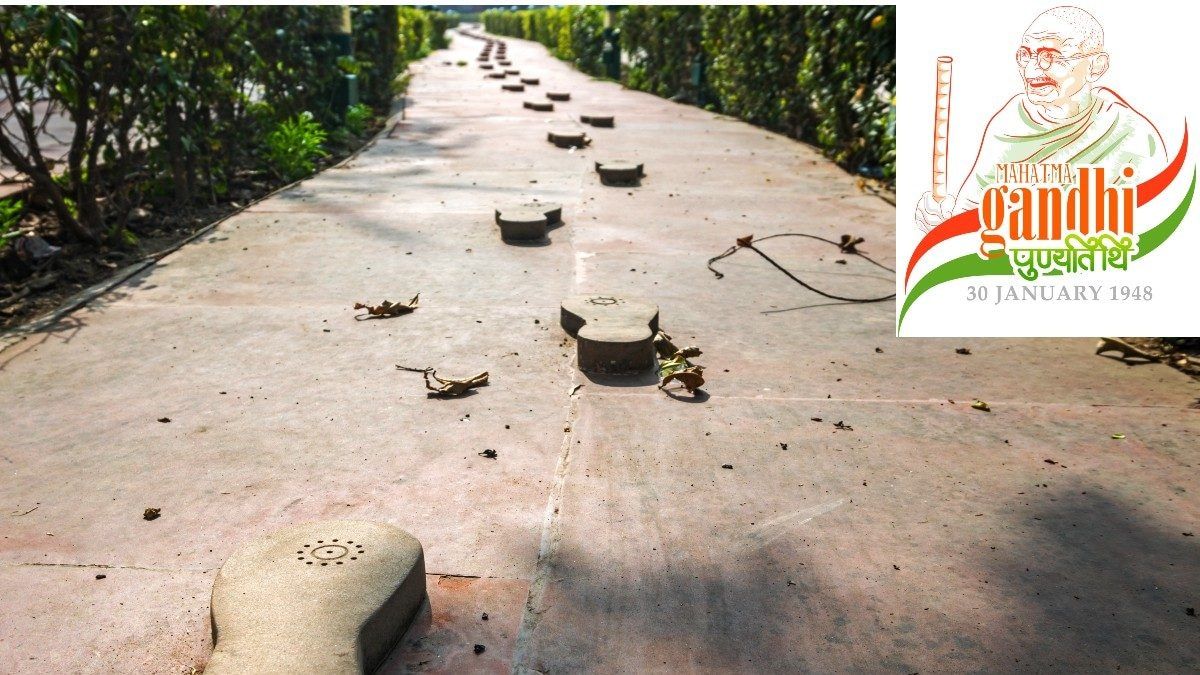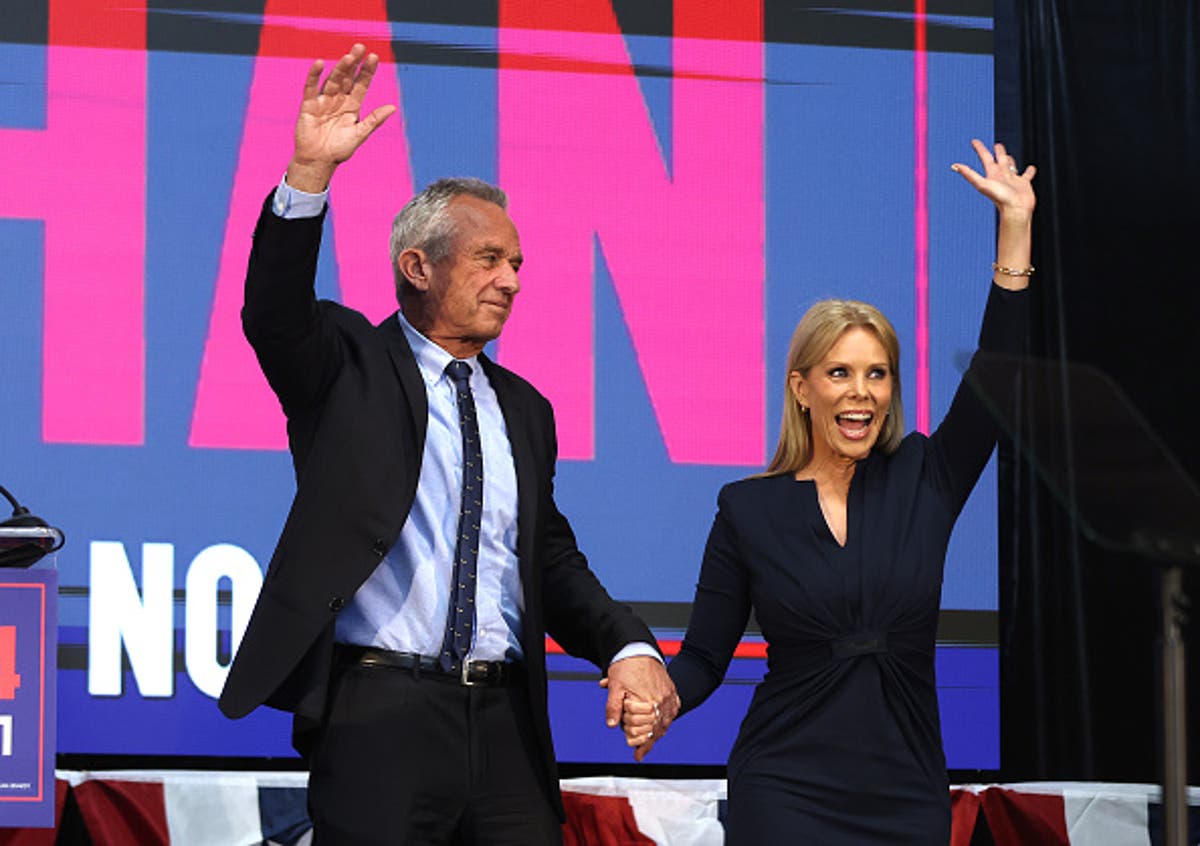Curated by: Nibandh Vinod
Last update: January 29, 2024, 21:16 IST
Martyrs' Day 2024: Footprints leading to the site of Mahatma Gandhi's assassination at the Gandhi Memorial in New Delhi. (Images: Shutterstock)
On Martyrs' Day, India remembers Mahatma Gandhi, the Father of the Nation, and his lifelong commitment to Satyagraha and non-violent resistance. Discover his life, his philosophy and his lasting impact on India and the world.
On January 30, India solemnly celebrates Martyrs' Day, or Shaheed Diwas, which marks the death anniversary of Mahatma Gandhi, the leader who led the nation's struggle for independence. This day signifies not only the tragic assassination of Gandhi in 1948, but also the countless sacrifices made by freedom fighters to secure India's sovereignty.
Born Mohandas Karamchand Gandhi in 1869, he returned to India after studying law in England. Witnessing firsthand the injustices of British rule, Gandhi embarked on a unique path of nonviolent resistance, dubbed “Satyagraha.”
Gandhi's philosophy transcended mere political resistance. He emphasized truth, nonviolence, and civil disobedience as powerful tools for social change. He mobilized millions through peaceful protests, marches and boycotts, challenging the power of the British Empire with unwavering determination.
A SYMBOL OF UNITY AND HARMONY
Beyond political independence, Gandhi stood for social justice and communal harmony. He advocated for the rights of marginalized communities, including untouchables, and worked tirelessly to bridge the gap between Hindus and Muslims. His vision of a united and inclusive India guided all his actions.
THE SHADOW OF VIOLENCE
Despite his unwavering commitment to peace, Gandhi's life was tragically cut short by violence. On January 30, 1948, while attending a prayer meeting, he was assassinated by Nathuram Godse.
A LEGACY THAT LASTS
Gandhi's death shocked all of India and the world. It served as a stark reminder of the fragility of peace and the dangers of hatred and division. However, his legacy of non-violence and Satyagraha continues to inspire generations across the world.
MARTYRS DAY: PAYING TRIBUTE
Every year on Martyrs' Day, India remembers not only Gandhi but also all the freedom fighters who laid down their lives for the nation's independence. Leaders pay tribute at Raj Ghat, the Gandhi memorial in Delhi, laying wreaths and observing a two-minute silence. This national celebration serves as a powerful reminder of the sacrifices made and the values they fought for.
Gandhi's message of nonviolence and peaceful resistance extends far beyond India's borders. He has inspired countless social justice and human rights movements around the world, from Martin Luther King Jr.'s fight for racial equality in the United States to Nelson Mandela's fight against apartheid in South Africa.
The life and work of Mahatma Gandhi continue to resonate with deep meaning. He remains a potent symbol of peace, truth and justice, and he reminds us that even in the face of adversity, nonviolent resistance can be a powerful force for change. As we remember him on Martyrs' Day, let us renew our commitment to uphold his values and build a world where peace and harmony prevail.













